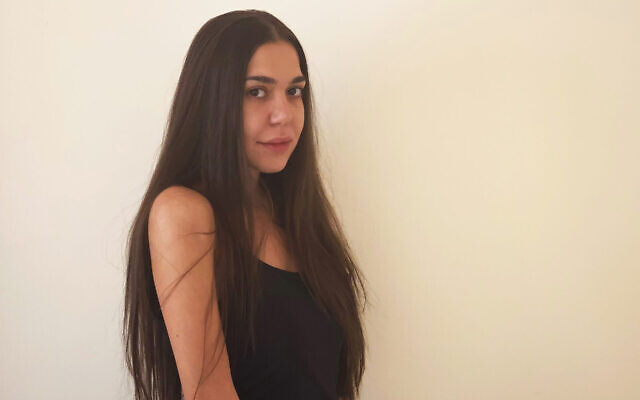UK-based Palestinian refugee gets Spanish citizenship due to Sephardic roots
Heba Iskandarani, a lecturer at Birmingham City University, has been stateless most of her life. But a recent discovery of Jewish heritage has given her new belonging
As a U.K.-based academic who was born in Dubai to a Palestinian father and Lebanese mother, Heba Nabil Iskandarani had plenty of potential national identities.
What she lacked, however, was a passport.
A 26-year-old lecturer in architecture at Birmingham City University, Iskandarani has been stateless for most of her life, possessing only a Lebanese travel document that defines her as a Palestinian refugee.
But after discovering that her Palestinian father had Jewish roots going back to Spain, Iskandarani was able to claim Spanish citizenship thanks to a 2015 law that promised to naturalise anyone whose Jewish ancestors fled the Spanish Inquisition.
In an interview with the Jewish Telegraphic Agency, Iskandarani attributed her quest for citizenship as rooted in both an emotional search for an identity and as a practical remedy to the bureaucratic complications that resulted from her lack of national citizenship.
“This deep addiction for belonging made me look deeper into my family history,” Iskandarani wrote in a Sept. 12 Facebook post. “I wanted to find a solution to break the cycle of shame, the feeling of being less than all. I needed an identity a country to fall back too [sic].”
Iskandarani is one of more than 43,000 non-Jews who have reportedly received Spanish citizenship under the 2015 law, which was adopted to atone for Spain’s persecution and forced exile of its Jewish community in the 15th century. The law invited its descendants to apply for Spanish citizenship if they could demonstrate both that they were descended from Sephardic Jews and had a special connection to Spain. Over 150,000 succeeded.
Iskandarani had a DNA test that showed she had both North African and Iberian ancestry, and genealogists have shown that her last name can be traced back to Spanish Jews. But she still needed a document attesting to the Jewish identity of her paternal great-grandmother, Latife Djerbi, whose last name references an island off the coast of Tunisia where many Sephardic Jews once lived.
Iskandarani managed to find one of her great-grandmother’s old identity cards in Beirut lying in a trove of documents that her family had meticulously preserved for decades despite moving many times — sometimes because of the multiple wars that have ravaged Lebanon.
One of her sisters also received Spanish citizenship recently, while two other siblings are in the vetting phase. Her father is applying for citizenship from Portugal. Iskandarani and some of her relatives also applied for Portuguese citizenship under a similar law of return that Portugal passed in 2013. Her application in Portugal is still pending.
Iskandarani’s story was first reported on Sept. 20 by the Luxembourg-based paper Contacto.
The discovery of her father’s Jewish roots came as a shock to some in her family, but others had their suspicions. Her great-grandmother would peel hard boiled eggs and dip them in saltwater during a meal each spring, a habit she said was “just a tradition from Tunisia” but which Iskandarani now believes was related to a custom associated with the Passover Seder. And her mother recalled noticing that none of her husband’s ancestors had Muslim names.
“His great uncles were named Jacob, Ruben, Moses, Zachary. And my mother now recalls thinking that was strange,” Iskandarani told JTA.
Iskandarani said she has grown more interested in Judaism since her discovery, though she had been curious about it previously. At 15, she got a tattoo of a verse from the Hebrew Bible about Jerusalem.
“Though maybe that was the Palestinian side of me, maybe mixing with the Jewish one,” she told JTA. “I don’t know at this point.”
With the acquisition of her Spanish passport, Iskandarani is now free to visit Jaffa, the ancient port city south of Tel Aviv where her grandfather was born. According to Iskandarani, her family was “exiled” from Jaffa around the time of Israel’s War of Independence in 1948 and, in her Facebook post, she compared the persecution of Jews during the Inquisition to her ancestors’ flight from prestate Israel.
“Absurdly our conversion to Islam got us exiled from Jaffa yet again for again being of different religion and ethnicity,” she wrote. “Quite ironic don’t you think being exiled twice for the exact same reason?”
In her interview with JTA, Iskandarani reconsidered the comparison, conceding that there’s a difference between a campaign of religious persecution and the loss of homes during wartime. But despite some past social media posts that have been critical of Israel, Iskandarani said she isn’t interested in taking sides when it comes to Israel and is mainly looking to gain understanding.
“I have no interest in offending or accusing any one side,” Iskandarani said. “On the contrary, I want to understand, really understand, the Palestinian side. But also the side of a Jew from Europe or Tunisia who came to Palestine to build a Jewish homeland there. I’m in favor of peace and coexistence.”

Thank you for helping to make Jewish News the leading source of news and opinion for the UK Jewish community. Today we're asking for your invaluable help to continue putting our community first in everything we do.
For as little as £5 a month you can help sustain the vital work we do in celebrating and standing up for Jewish life in Britain.
Jewish News holds our community together and keeps us connected. Like a synagogue, it’s where people turn to feel part of something bigger. It also proudly shows the rest of Britain the vibrancy and rich culture of modern Jewish life.
You can make a quick and easy one-off or monthly contribution of £5, £10, £20 or any other sum you’re comfortable with.
100% of your donation will help us continue celebrating our community, in all its dynamic diversity...
Engaging
Being a community platform means so much more than producing a newspaper and website. One of our proudest roles is media partnering with our invaluable charities to amplify the outstanding work they do to help us all.
Celebrating
There’s no shortage of oys in the world but Jewish News takes every opportunity to celebrate the joys too, through projects like Night of Heroes, 40 Under 40 and other compelling countdowns that make the community kvell with pride.
Pioneering
In the first collaboration between media outlets from different faiths, Jewish News worked with British Muslim TV and Church Times to produce a list of young activists leading the way on interfaith understanding.
Campaigning
Royal Mail issued a stamp honouring Holocaust hero Sir Nicholas Winton after a Jewish News campaign attracted more than 100,000 backers. Jewish Newsalso produces special editions of the paper highlighting pressing issues including mental health and Holocaust remembrance.
Easy access
In an age when news is readily accessible, Jewish News provides high-quality content free online and offline, removing any financial barriers to connecting people.
Voice of our community to wider society
The Jewish News team regularly appears on TV, radio and on the pages of the national press to comment on stories about the Jewish community. Easy access to the paper on the streets of London also means Jewish News provides an invaluable window into the community for the country at large.
We hope you agree all this is worth preserving.






















